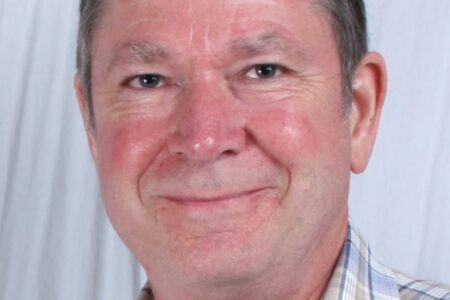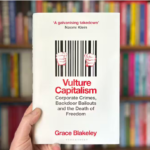Rules for Living
Arc of the Cognizant LXXXVIII
Life and its discontents
“When ancient opinions and rules of life are taken away, the loss cannot possibly be estimated. From that moment we have no compass to govern us, nor can we know distinctly to what port to steer.”
Edmund Burke, English MP, c. 1790
“When life is mysterious, uncertain, full of risk, — and appears to be out of your hands – then you are living it well.”
Cecelia Holland, in her novel, Vaumartin
“My Life, My Rules.” — anonymous posting, Facebook pages
By Charles Jeanes
Writer’s block
This week I sat down at my keyboard without a clue what I would write about. I cannot recall that ever happening so long as I have been writing this column. I’d been thinking maybe I would write about love, since Valentines Day left me feeling distinctly sad for myself, a man without a love partner and still grieving my latest, lost one. But that seemed too self-indulgent.
Then I thought about the meaning of “myself” and the insight that who we think we are is not who we truly are, we merely tell ourselves stories and try to maintain an identity with our thoughts.
From there I thought about all the wise rules I have read for living a happy, serene, or good life… and aha! I had my topic. Rules for Life. I found Ten Rules I have read before, and decided to go through each Rule. Here they are.
1. You will receive a body.
The “you” in this rule is problematic. You are not the ego self inside your head. You are an immaterial being, you have now become material and mortal, you now experience the condition known as “human being.”
I adhere to this concept. Not everyone will agree that this is how human life is ordered. I have existed before my body, not as the self that my ego constructs in my life, but as some being not human — because human is mortal and material. That “some being” incarnates in my body.
This is the meaning of the cute story about the four-year-old girl asking her two-month-old infant brother: “Quick, tell me all about Before, ‘cause I’m forgetting it all.”
The esoteric formula about life other than this we one mortal humans know, is captured in the words “beyond the Veil.”
If I were to accept completely the teachings I have read about karma, I might say that my pre-existing being “chose” the body I would receive, the parents I would have, the family, the social class, and the place and time of my incarnation, so that I would have certain experiences.
I am not persuaded of these karmic teachings. But it makes perfect sense to me that death is in no way final for my being, it is only an end to the body and the ego self that navigated that body and brain through a mortal existence. The ego dies when the body dies. Some being lives on afterward, when that being has once again gone beyond the Veil.
2. You will be presented with Lessons
This Rule of course has karmic significance, since karma is supposed to explain why things happen to us in our mortal lives. “It’s my karma” is a phrase I hear rather often around Nelson and anywhere the counterculture of quasi-buddhists/spiritual-seekers/consciousness-evolvers is strong. Nothing happens without a reason. It is meant to be.
Who “presents the lesson” to me? That is my objection to this particular formulation of the rule. Who has decided what lesson I need to learn, and who arranges for it to happen? I cannot agree that there is a conscious agent, a divinity or a force, that is my guide and teacher.
I part company with karmic thinking. Yes, there are lessons to be gained from experience. That is a deep conviction of my particular self, and it is why I am passionate about history, the study of the past. But a lesson is not taught by any greater being beyond us who orchestrates what we have to learn. I alone am responsible for the lessons I draw out from experience. No being called “History” teaches us anything. We teach ourselves, we draw conclusions, with the native intelligence we have. Different individuals draw different conclusions. Lessons are as unique as the person who determines the meaning of an event in his or her life.
3. There are no mistakes, only Lessons
This is a comforting rule, but false. I agree that we learn from mistakes. I do not agree that nothing is ever a mistake; such thinking has the same meaning as rule #2, that there is an agent overseeing our experiences other than ourselves. It would be comforting to think I never made a mistake that was not ultimately good for me in some manner. I reject that thinking.
Mistakes are made. Mistakes have consequences that hurt you. The first time you make a mistake, it is a lesson. You have to learn it. Hopefully it was not literally fatal and you will have a chance in life to face the same circumstances and make the wiser, positive choice the second time you face them. A mistake is forgivable. A mistake deserves its name, and cannot be wished away by renaming it “a lesson.”
If you do it again, you have failed to learn. To repeat an action, behavior, way of speaking, or way of thinking, that manifestly harms you, is not showing that you have learned. It shows you have formed a habit, a pattern, that is not to your benefit. Bad habits are notoriously hard to break.
4. Lessons are repeated until learned
I agree, when this rule is understood to apply to quite high-level matters of living, not the simplest. Falling in a hole and repeating the fall every day because you forget the hole is in the same place every day you take the same path, is not the kind of lesson this rule refers to.
Rather, this rule refers to some of the hardest aspects of human living. Learning what kind of people you need around you, whom to trust, whom to love, whom to help repeatedly — these kinds of learnings are the lessons that most of us have to have repeated, until our judgment has matured and our wisdom has deepened. The qualities of other people are not simply on the surface, available to our knowledge just on first acquaintance. Time nurtures our perceptions and understanding. Our conscious ability to reflect on the meanings of things that happen to us, improves with longer experience of life.
There is no substitute for the quality of mind we call wisdom. Some individuals grow more quickly into this quality, and some unfortunate people never acquire it.
The most mysterious personality or character one has to comprehend and know well in this mortal life, is oneself. Who is this self? What does it want, what does it need, and does it know the clear distinction between desire and necessity? Can it be changed, and if so, how?
“Know thyself” is an ancient rule for living; Socrates is credited with this aphorism. One of the greatest lessons in mortal life is to know what the self is, and how to harmonize that self with the material circumstances in which it finds existence. Plato believed in the daimon, a part of our make-up that is inborn; when one’s ego tries to force one’s life to go “against the grain” of one’s innate daimon, one’s existence will be conflicted, difficult, and unfulfilling – a struggle against the abrasions of the outside world because “the soul’s code” is being violated by the willful ignorance of the ego. The ego is not ultimate master, but it may rule you.
We are often enjoined to listen to our deepest, truest self, and obey the urgings from within that tell us what to do, what to avoid. The “small, still voice within” urges us to be our truest self, not the one that ego would like to force on to us, for the sake of ambition, fame or power.
The lessons that are repeated until we learn them, are lessons about who we truly are.
5. Learning does not end
I rather think this needs no commentary. Its meaning is self-evident, and so is the truth of it. I expect I will learn something worthwhile the day of my death. I hope the same for everyone.
6. “There” is no better than “here”
This tells us that “the geographic cure” does not work; no matter where you go, you will take along your self, and your self may be the very thing you hoped to leave behind.
However, I do think that a change in outward circumstance may be so very positive for one that a change inside comes about. Changing one’s self might indeed result from being with a whole other sort and quality of people, doing different work, seeing different geography, experiencing a different climate, culture, and society. Externals do matter, in this world of material, mortal existence.
So I am sympathetic to people who feel they simply must leave one place and go elsewhere, so long as they have lived long enough and actively enough in one place and truly understand that the place and the people in it, are not “simpatico.” The daimon that I noted in rule #4 may be the profound reason why one is miserable in one location and thrives in another. Personally, my own life and self appeared to blossom and flourish once I moved to the Kootenays from the urban region of the Lower Mainland.
It is all very well to say, “Grow where you’re planted.” But there is growing, and then there is thriving, and one is entitled to find a place where blossoms are the rule, not merely leaves.
(As for my use of the word “entitled” – read down to #8)
7. Other people are only mirrors of you
There are many aspects to this rule. It is probably clear by now that I believe in people’s differences and how each of us seeks out qualities in others that are harmonious with our deepest, truest selves.
I also understand that people teach us a great deal, and those individuals whom we experience in depth and in time the most, are going to have profound effects on us and be lessons to us.
The meaning of people being a “mirror” to us is twofold, I think. First, it is a commonplace observation that what we dislike in another person, and complain about, is so often a trait or behavior that we ourselves exhibit a lot. Once we discover how much we complain about another person, and identify the things we object to, we are on the path to knowing some qualities of our own character that are not positive.
It is a mark of how much one’s own consciousness has matured when we see this phenomenon at work, and can learn from it. The lesson we learn is, what we want to change in ourselves. As for changing your self, that is not a matter for rules of living. There is no rule that you must change, just a great likelihood that your life will feel better to you if you live it harmoniously with the daimon one is born with.
The second meaning of other people being a “mirror” of you, is harder to put into words. Why is a material incarnation in a body necessary? This will always be a mystery to us in this mortal existence, I think. But I can reason my way to tentative conclusions about an answer.
In bodies, we can encounter other beings. On this mortal plane, as human beings in physical bodies, we can do much to hurt, to help, or to ignore, other beings. The great religious traditions of humanity all agree that it is important to do good, to love, and to be compassionate, to others, and humans are taught this in most cultures. In other people we see mirrored the condition we are in: incarnated in a body, subject to pain, fear, and a host of unpleasant sensations. What do we do? Observe the so-called Golden Rule – the rule of all rules – or pursue selfish drives?
After our bodies die, will some being, which was incarnated in us until death, thereafter suffer consequences for what we did in our bodily lives? I don’t know, and no one else does either.
So why bother to live a good life if there is no punishment? Because it feels better to live that way.
8. What you make of your life is up to you
I disagree. You have some freedom of maneuver. But many things in life are not of your making. You adjust, you navigate, whatever circumstance is imposed on you, as best you can. The result of all our actions and striving and thought and feeling, is not all “up to you.”
We are not accountable for all that happens to us in our lives. I believe we are entitled to try and change anything in life that we encounter and we find unacceptable to our personal values. Having no values at all, not living in accord with some measure of what is good and what is less good, seems like no life at all. I cannot conceive of a human being living that way.
“Serenity to accept the things you cannot change, courage to change the things you can, and the wisdom to know the difference” – these three qualities are indeed essential to living well.
The only thing I feel responsible for is whether, indeed, I did “the best I could” in adjusting to the externals of my physical life, and in consciously striving for growth in my interior life.
9. Your answers lie inside of you
I think I have examined this idea quite fully in #4 and #7. Whether any of the rules make sense to you up to this point, is decided inside of you. Thank you for reading this far.
10. You will forget all this
Well, maybe not. You can read these rules until you memorize them. But internalizing them as a way to make sense of your own experience of life may not be your choice. I believe there is some wisdom in them.
If you don’t like these, there are plenty more on offer. Google “rules for life.”


























